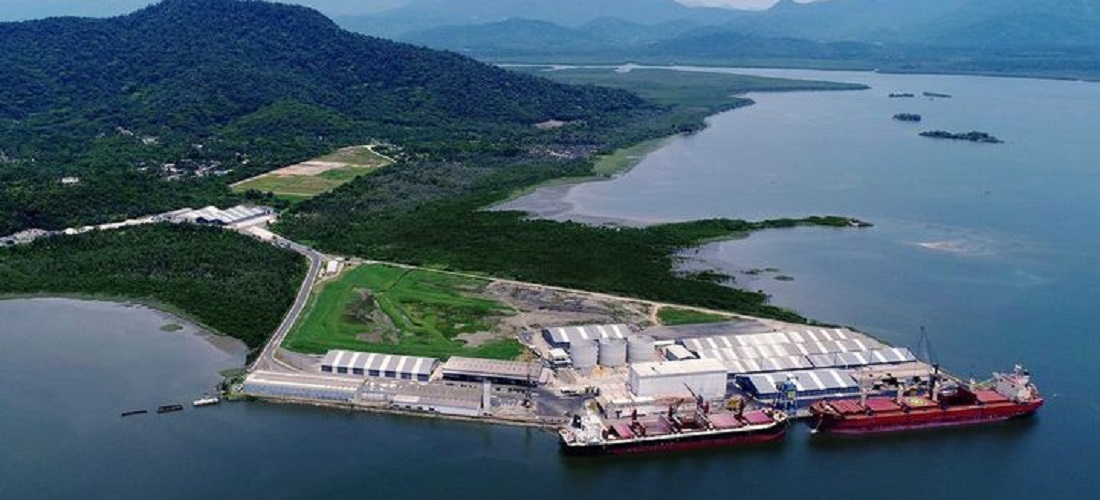
Port of Antonina predicts 50% growth in 2021
Dec, 28, 2020 Posted by Ruth HollardWeek 202053
The Port of Antonina, located on the coast of Paraná, forecasts a 50% growth in cargo handling in 2021, especially for non-GMO soybean meal, fertilizers, and new products such as wood, chips, organic grains, and project loads.
The expectation is due to the favorable scenario caused by the high dollar, the rising price of commodities, and the growing demand for food worldwide.
In 2020, Ponta do Félix Port Terminals (TPPF) – the company responsible for the concession of the Port of Antonina – guaranteed the movement of almost one million tons, even in an atypical pandemic year.
The total of 950,626 tons of products handled in 2020 – between bulk, fertilizer, soybean meal, general cargo, and sugar – represents an increase of 5% compared to 2019, when the movement reached the mark of 908,000 tons.
Check the chart below for a comparison of long-haul cargo handling at the Port of Antonina between January and October 2016 to 2020:
Long-haul Cargo Handling at the Port of Antonina | Jan to Oct 2016-2020 | WTMT
Graphic source: DataLiner (To request a DataLiner demo click here)
TPPF’s CEO, Gilberto Birkhan, explains that the economic situation for 2021 is favorable for Brazilian agribusiness, as are the investments in improvements to the maritime structure. “Allied to the favorable economic scenario, it is also possible to highlight the alignment of all spheres of public power in terms of ensuring better navigability for Brazilian ports, as well as navigation safety thanks to the increase in our draft depth, which will allow us to leverage these numbers even more”, enumerates Birkhan.
Challenges – For him, the challenge for next year is to achieve the growth target – consolidating the Port of Antonina on the national scene – as well as maintaining the current working conditions safe. “For the next year, we can no longer take the pandemic into account, considering that the working conditions have already changed. We grew this year and the port did not stop. We owe that to the confidence and determination of our employees”, said Birkhan.
In addition, according to him, another proposal that is advancing is cabotage navigation, encouraged by the federal government which forwarded Bill 4199/2020 to the National Congress and which instituted the cabotage transport stimulus program, BR do Mar. The objective is to establish new conditions for expanding the fleet dedicated to the transportation of cargo via cabotage in Brazil.
“We also have invested heavily in new infrastructure projects, including railways. All of this will contribute to the growth of the country and, consequently, to the growth of the Port of Antonina”, he reinforces.
Antonina’s differential – Among the advantages of exporting and importing through the Port of Antonina are the ability to work with differentiated loads, less waiting time due to management of the ship lineup (optimizing the port’s capacity and allowing service to ships with managerial priority according to the customer’s needs), and the customs terminal with a warehouse which allowed 47% more fertilizer to be stored.
Expansion – TPPF currently has 60,000 m2 of storage infrastructure, with an estimated capacity of 200,000 static tons, and expansion works are in progress. The expansion project foresees the construction of grain silos and a new fertilizer warehouse – in a 17,000 m2 area – with a capacity for 120,000 tons of product. “We are investing in high-quality equipment in Brazil, such as concrete silos and state-of-the-art equipment which allow the least possible impact of external temperature on the quality of stored products”, concludes Birkhan.
-
Grains
Aug, 09, 2023
0
Brazil sees highest paddy rice export volume in 2023 thus far
-
Ports and Terminals
Sep, 21, 2022
0
Latest Port of Santos privatization update calls for BRL 25bn in investments
-
Other Logistics
Aug, 08, 2019
0
Decree regulates brazilian contracts relicitation of highway, railway, and airport
-
May, 22, 2023
0
Port of Vila Velha announces 7 million tonnes of cargo throughput

